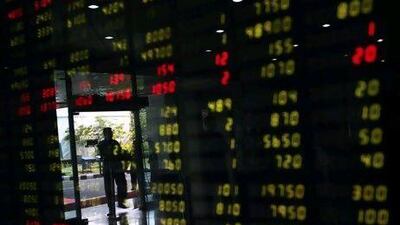If a company is buying its own shares on the open market, is that a sign that other investors should follow suit?
More Business news: Editor's pick of today's headlines
Last Updated: May 12, 2011
Damac to fight Cairo conviction Damac Properties said it would fight a conviction of its chairman in Egypt on charges of corruption by filing an arbitration claim against Egypt in the International Centre for Settlement of Investment Disputes. Read article
DP World in line for early stock listing in London DP World could be listed on the London Stock Exchange as early as May 26 after it got approval from its shareholders to proceed with the listing. Read article
All go on planet of the apps Industry Insights // Consumers are pushing the tech industry to come up with better ways to access the billions of apps they have downloaded. Read article
Shoppers in Abu Dhabi soon to sit in the lap of luxury Abu Dhabi is set for luxury, as one of the Middle East's largest premium retailers plans rapid growth. Read article
Pakistani clothing retailer Nishat making inroads in Dubai A major textiles manufacturer and retailer from Pakistan has made its first move into international markets with the opening of a new store in Dubai. Read article
Two Insead professors believe so, and last week they announced plans to launch the PV (Peyer Vermaelen) Buyback USA Fund, which is to go live on June 1. It aims to invest exclusively in companies listed in the US that buy back their own shares. While companies buy back stock for numerous reasons, this particular fund will focus only on those firms that say they are buying back shares because they are undervalued.
"We're looking at the list [of stocks] now and screening a bunch," said Theo Vermaelen, a professor of international finance and asset management at Insead and co-creator of the fund. "They can be small companies announcing buy-backs in different sectors. They may be in the education sector - that's gotten beaten up a lot lately because of regulation."
To encourage investors to hold their money in the fund for at least two years, PV Buyback USA will charge early leavers a 3 per cent fee, which will be shared among the remaining investors.
Everyone will pay a 1.25 per cent annual management fee, plus a 10 per cent performance fee if the fund outperforms the Russell 2000 Index in absolute terms. Overall, the fees are "pretty low", Prof Vermaelen said.
"There's no stock fee or load fee, and no exit or redemption fee," he said.
The list of companies in the fund will be based on an index that measures the likelihood that a buyback is driven by undervaluation and incorporates past price behaviour and company size, among other criteria. Prof Vermaelen has applied a similar strategy in the past, between 1998 and 2004, when he was responsible for selecting portfolios at a buy-back fund in Belgium.
He and the PV Buyback USA Fund's other creator, his fellow Insead professor Urs Peyer, have also more recently conducted research showing two recommended lists of stocks using the same methodology. One group of stocks earned a 36 per cent return after one year, while the second group returned 162 per cent after two years. Both outperformed popular benchmarks such as the S&P 500 and the Russell 2000.
But some experts warn that investors generally do not understand share buyback programmes sufficiently. Terry Smith, the chief executive of the UK brokerage Tullett Prebon, has argued in recent weeks that share buy-backs destroy value for the remaining shareholders of a company and that the cash could often better be used for other purposes.
He has also written that the problem when a company repurchases shares is that they disappear from the balance sheet, which "can be used to distort measures of company performance".
PV Buyback USA will not be without its own risks, Prof Vermaelen conceded. Some of the companies would be smaller and could be more volatile than bigger businesses.
Those interested in accessing the fund will need a minimum of €125,000 (Dh661,291), or letters of support from their banks attesting that they are professional investors and understand the associated risks.
"We have mainly large families and high-net-worth individuals who are investing in the initial stage," said Prof Vermaelen, who is trying to raise $7 million to $10m to invest in the fund on June 1. "We have a lot of interest," he said.
Some investors will be able to bypass the restrictions. Insead employees, in Abu Dhabi and other campuses around the world, as well as alumni of the school, can invest in the fund with a minimum of $25,000.
Also, 10 per cent of the fund managers' performance fee will be donated to Insead's endowment.

